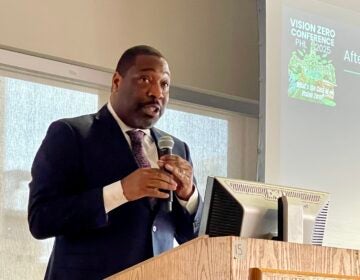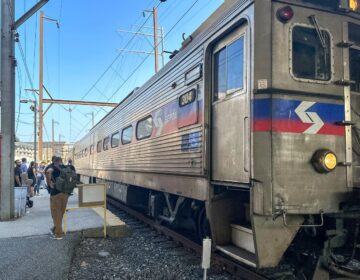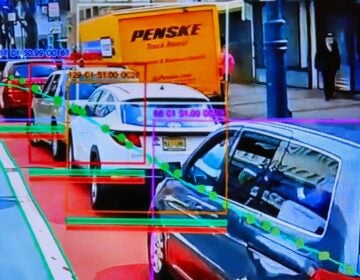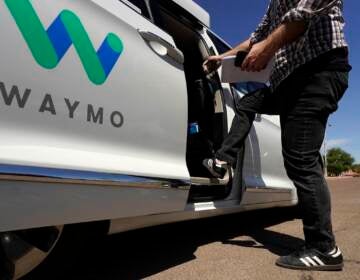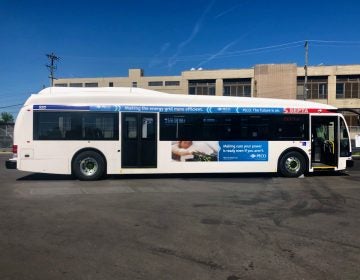Philly study focuses on learning how to use public transit as path to independence for people with learning disabilities
Researchers at Temple University will look at the effectiveness of the Chance to Ride travel training program and recruit participants in Philly.
Listen 2:34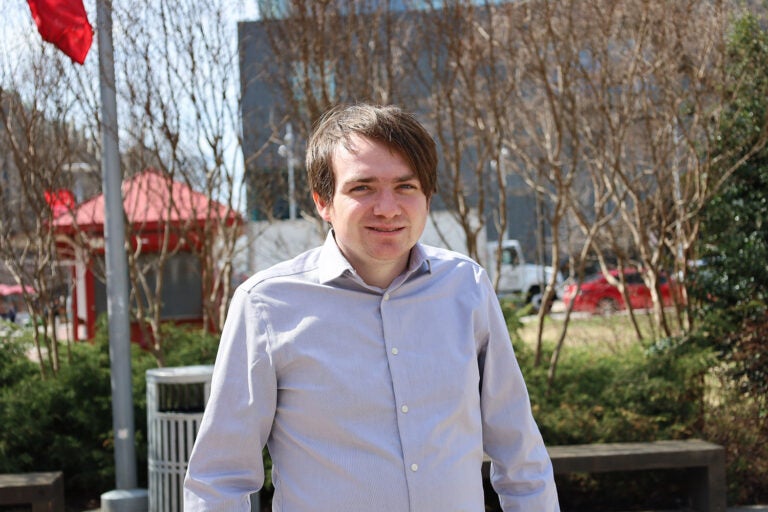
Luke Tomczuk, 28, of Philadelphia, is a member of a research team at Temple University studying the effectiveness of Chance to Ride, a training curriculum and program designed to teach young adults with intellectual and/or developmental disabilities how to use public transportation systems. (Nicole Leonard/WHYY)
From Philly and the Pa. suburbs to South Jersey and Delaware, what would you like WHYY News to cover? Let us know!
At the corner of 4th and Spring Garden streets in Philadelphia, Luke Tomczuk waited for the 57 SEPTA bus. Soon it came rumbling down the street and riders stepped on, tapping their key cards as they went.
“Sometimes this bus, you have to wait,” Tomczuk said as he slid into a blue plastic seat. “Quite a while, because it gets cancelled and things of that nature.”
Tomczuk, 28, started taking SEPTA buses when he was in high school, and the subways and trains when he was in college at Temple University.
“I’ve had almost two-hour trips on SEPTA, gone from one end of the network to the other on it,” he said. “It’s something that has always fascinated me.”
For Tomczuk, who is autistic, learning how to use public transportation granted him more freedom and flexibility to get around the city, he said. Now, he’s using those skills in his job as a peer travel trainer, as he helps others with intellectual and developmental disabilities learn how to navigate public transit.
“I remember back to when I learned how to take it in high school, and I thought it was a very simple travel route,” he said. “But I know that same travel route on the same line could be very stressful for somebody else like me.”
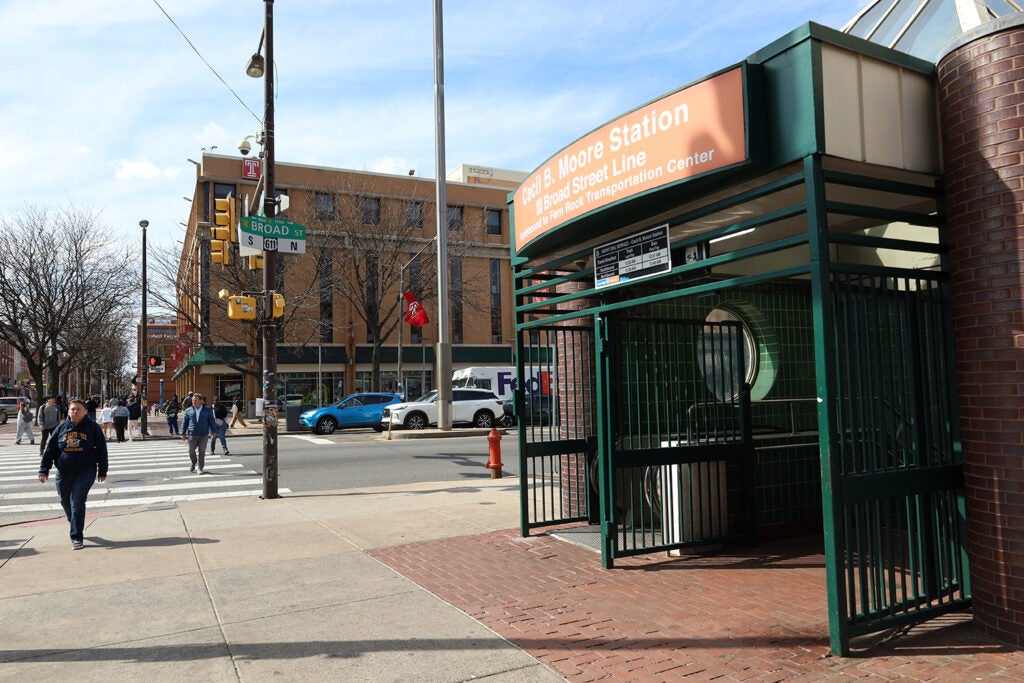
Using SEPTA public transit in Philadelphia can be a great way to get around the city. But the underground mazes of subway tunnels, crisscrossing bus routes, hard-to-hear announcements and packed crowds can make it a confusing, overwhelming experience.
These factors can present unique challenges for young adults with intellectual and developmental disabilities like autism as they learn how to navigate the transit system on their own and gain more independence.
To make this learning process easier for this population, researchers at Temple University’s College of Public Health will launch a new study this month looking at the effectiveness and implementation of the Chance to Ride program, one kind of travel training curriculum.
Beth Pfeiffer, lead researcher and director of the REACH Collective at Temple, said the ultimate goal is to identify tools that work. The study will also evaluate how successful travel training may improve broader health and social outcomes among young adults with various disabilities as they travel to school, work and other activities.
“It’s a new and challenging time in life for everybody,” Pfeiffer said about the shift from childhood to adulthood. “And then when you have a disability, you’re navigating a whole new environment and world where you can benefit from certain supports and accommodations to be able to be more independent.”
Travel training involves teaching people how to follow transit maps and signs that let riders know where a train or bus is going, Tomczuk said. It can also be about learning how to safely crossroads to different stops and stations, how to remain alert on train platforms and where to ask for help.
Depending on what someone struggles with the most, Tomczuk said the best transit route for someone to learn and take could be different for everyone.
“The quickest route doesn’t always mean it’s the best route,” he said, highlighting the additional signage, announcements and SEPTA customer service staff, who are more likely to be found at underground stations along the ‘L’ and ‘B’ trains, as opposed to smaller bus stops above ground.
The study, funded by the Patient-Centered Outcomes Research Institute, will span five years. In addition to Philly, researchers at other universities will study travel training at sites in Florida, Minnesota and New England.
Pfeiffer and her team will work with local community organizations to recruit young adults with intellectual and developmental disabilities who are interested in learning how to use public transit.
Participants will then be split into two travel training groups: one that will be led by peer trainers, meaning others with autism and other disabilities, and another that will be led by other staff members.
“Our belief is that somebody who has a similar lived experience will be able to better convey that information, share their experiences about what worked and how that worked,” Pfeiffer said.
Tomczuk will soon join Pfeiffer’s research team full-time. The first year of the project will be dedicated to training new people to become travel trainers for the study.
Starting in 2026, participants will join and go through the Chance to Ride curriculum, which is a mix of textbook-based learning and hands-on training. The latter involves a travel trainer going out with participants to take public transit over a six- to eight-week period.
By the end of the program, Pfeiffer said participants should be able to take routes by themselves.
And hopefully, Tomczuk said, some of those participants may one day become peer travel trainers like himself.
“If we can even get one person at one of these sites to do something like what I do, I think even that will be mission accomplished, no matter what the outcome of the research is,” he said.
This story was produced as part of a PBS “Renegades: American Masters” grant.

Get daily updates from WHYY News!
WHYY is your source for fact-based, in-depth journalism and information. As a nonprofit organization, we rely on financial support from readers like you. Please give today.


